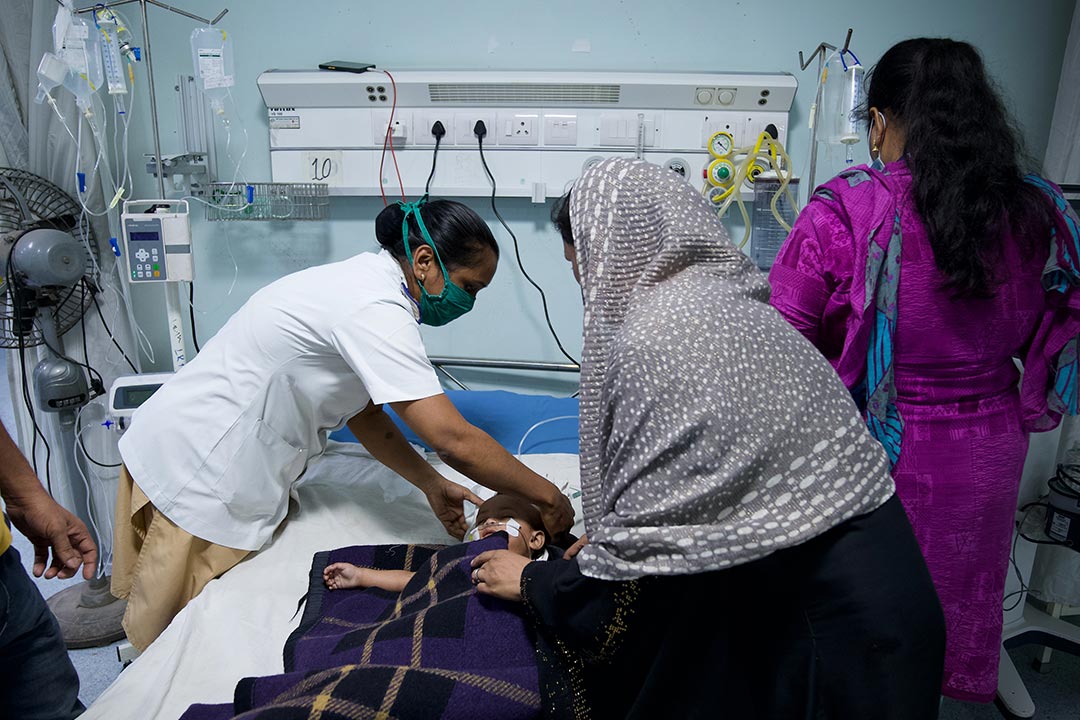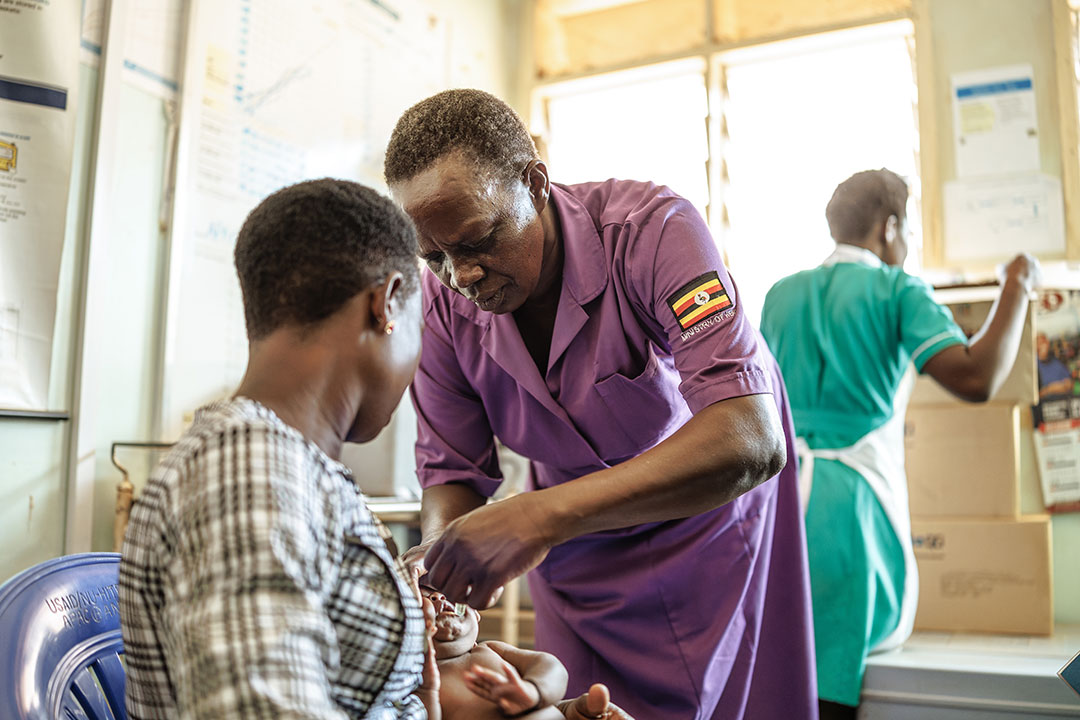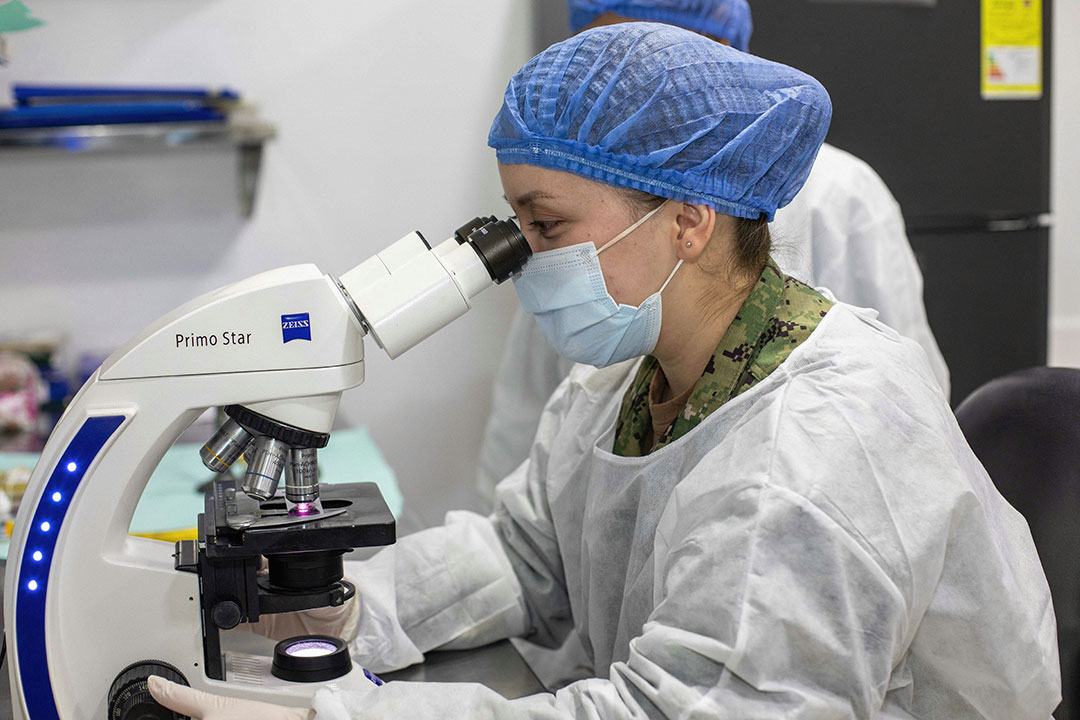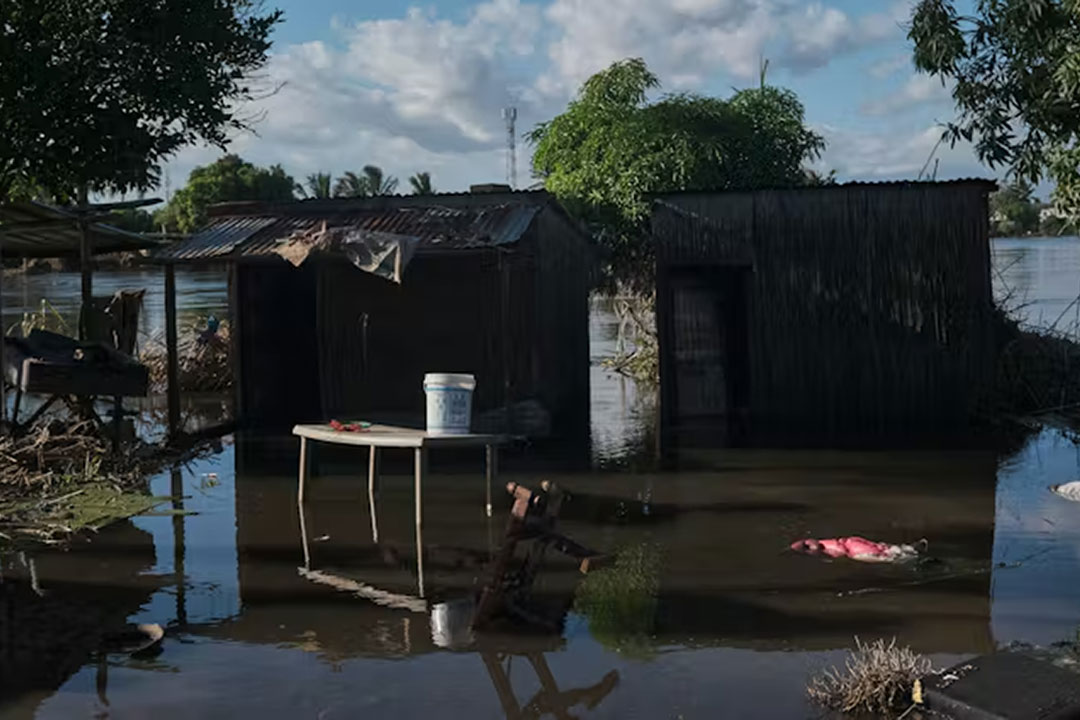“My fatigue disappears when I see their smiles”: A Himalayan vaccinator tells his story
Paramedic Irshad Ahmad often treks for hours to find missed-out kids – despite a disability that makes walking a struggle.
- 31 October 2023
- 5 min read
- by Nasir Yousufi
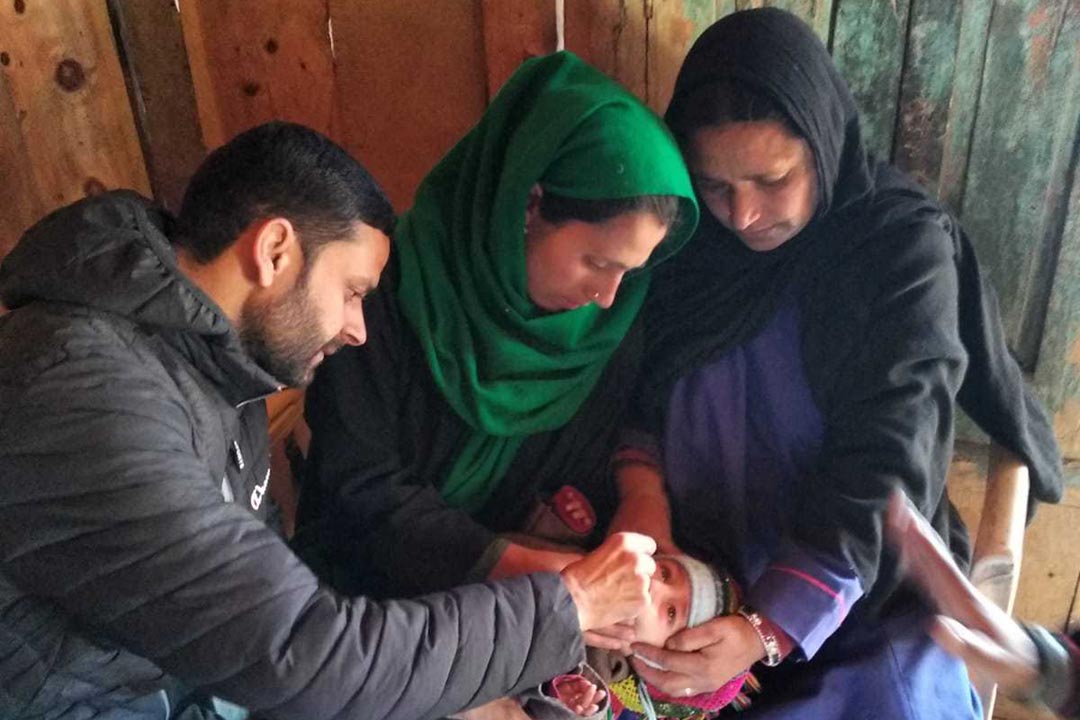
As closing time for a day-long vaccination camp in a remote Himalayan hamlet approaches, a young health worker gets restless. He is worried about two siblings who were expected for their routine vaccinations, but never showed up. Asking around, he learns that the family has shifted higher up the mountain to tend to their livestock. On the spot, the paramedic decides to undertake the arduous journey to find them.
"I leave early in the wee hours of the morning so that vaccines reach the village in time. There is always a risk of encountering a bear or leopard on the way, so I often move along with a group of villagers going to the village."
– Irshad Ahmad, vaccinator
But Irshad Ahmad, the 28-year-old vaccinator from Jammu and Kashmir's frontier district, Kupwara, has lived with a disability since he was eight. A weakened leg causes him to limp while walking and rely on a cane.
A local resident volunteers his horse – a tall, black animal. Ahmad mounts up, and rides three kilometres into the mountains. By evening, he has been able to vaccinate both missed-out children. A triumphant smile surfaces on his face.
Holding the line
Ahmad is the lone staff member and In-Charge at the Health Sub-centre of a remote mountain village called Naga. Situated on the banks of the Kishanganga or Neelum River, Naga also lies on the sometimes fractious Line of Control (LOC) between India and Pakistan.
It's not an easy place to serve. About 140km from Srinagar, the largest city in Indian-administered Jammu and Kashmir, it's just 10km from a small town called Keran. But the terrain is tough, and no paved road connects the two places, making Ahmad's regular journey to the primary health centre in Keran a challenging hike.
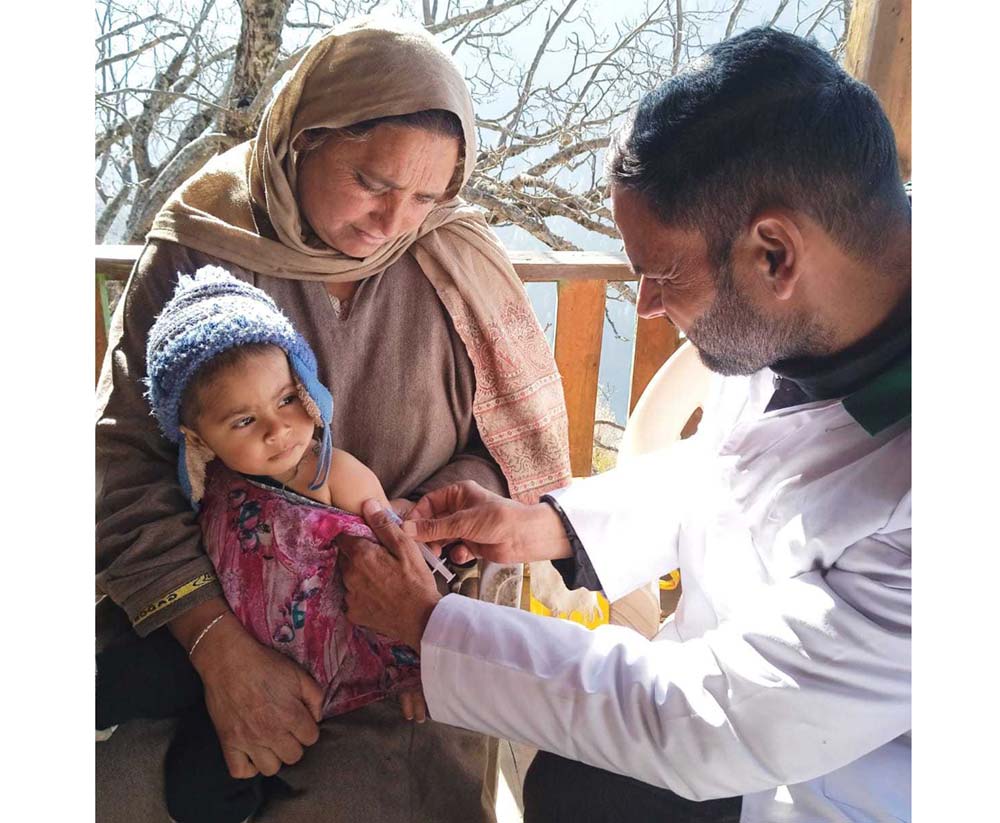
Credit: Nasir Yousufi
"I have been working here for the last six years. To perform duty in such a remote place is always a challenge. After the arduous treks and hectic work, the body aches are obvious. But all my fatigue disappears as soon as I see the smile on face of local population and receive their blessings and good words," Irshad said, while plodding towards the village holding a vaccine carrier in one hand and a walking stick in the other.
The village is home to a scattered population of about 1,700 people, who are mostly engaged in raising livestock. During summers, most of these pastoralists move into the upper reaches of the mountains to graze their cattle.
For Ahmad, making door-to-door visits means crossing meadows and ravines and climbing up steep slopes. Despite his disability, the tough terrain and the changeable weather, Ahmad has developed a reputation for reliability and efficiency.
"We are thankful to the health department and the vaccinator in our village for ensuring the much-needed immunisation to all," said Abdul Hameed Lone, the 62-year-old sarpanch or village head of Naga. "During summer months, there is an extra burden on the vaccinator to move through the kilometres of distances from Health Sub-centre to distant parts in the village to carry out the vaccination."
How to run a Himalayan health camp
For Ahmad, pulling together a fortnightly health camp actually begins the day before kick-off. Unlike other vaccinators in the Keran block, he has to spend the night at the Keran Primary Health Centre to collect the vaccines.
"After collecting the vaccine vials, I leave early in the wee hours of the morning so that vaccines reach the village in time. There is always a risk of encountering a bear or leopard on the way, so I often move along with a group of villagers going to the village," says Ahmad.
Have you read?
According to Zonal Medical Officer Dr Mushtaq Ahmad Bhat, who is posted at the Keran Primary Health Centre (PHC), Irshad Ahmad is always the first one to collect vaccine vials to ensure timely vaccination at his sub-centre. On average, Ahmad is responsible for administering 25 to 30 vaccines every fortnight in his village area, Dr Mushtaq added.
There is a lack of mobile phone signal in the high altitude villages, which hinders the communication between health officials and the target beneficiaries. But with the help of deeply connected frontline community health workers like ASHA (accredited social health activist) and Anganwadi workers, as well as social leaders like village elders, the paramedics are able to get the word out to the population.
"The vaccinator informs me about two days ahead of the vaccination camp held every fortnight. Since phones do not work here, I move around the village to spread the word about the camp. Local youths and elders also help in informing the target beneficiaries," explained Nasheena Begum, a local ASHA worker.
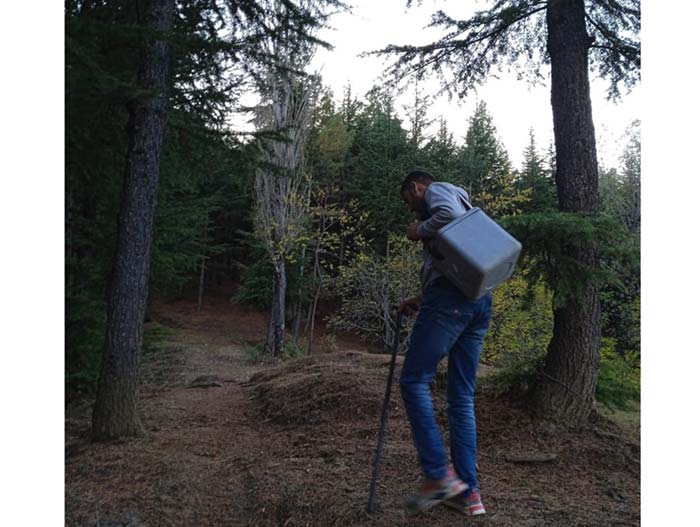
Credit: Nasir Yousufi
And if families can't make it, it's not a rare occurrence for Ahmad to seek them out. "All the beneficiaries cannot report at the sub-centre. So, I prefer to outreach the families in the evening who have missed the vaccine during the day. Since the houses are scattered over the vast stretch of mountain slope, often it takes me more than an hour to move from one end to another end of the village to administer vaccination," he told VaccinesWork.
His dedication has paid off measurably. During the first stages of the COVID-19 vaccine roll-out, his sub-centre was among the first in the Kashmir region to boast a 100% immunisation coverage rate.
Dr Javid Iqbal, Block Medical Officer, Kupwara, said, "despite being the hardest-to-reach area, our vaccination team in the village conducted three COVID-19 vaccination drives in the village – two for primary doses and one for booster dose," each one meeting its target.




